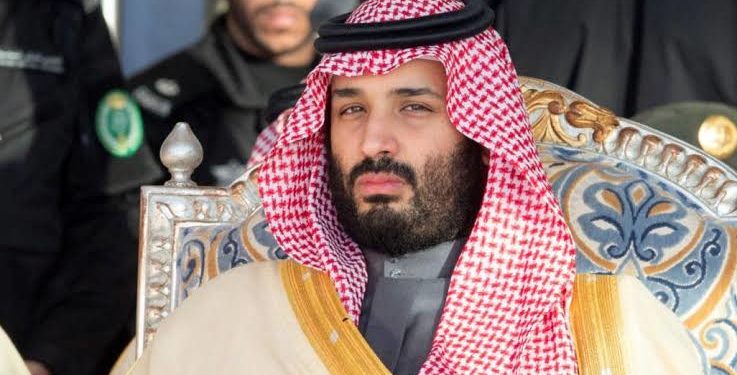
The successive personal scandals of Crown Prince Mohammed bin Salman reflects his diseased character par excellence, with specialists noticing that he suffers from a serious personality disorder.
Specialists say Bin Salman’s behavior intersects with the symptoms of paranoia and narcissism, and that he believes violence and sadism are two ways to preserve his authority.
He notes from Bin Salman’s actions and policies that he lacks confidence in the public and is always afraid of their efforts to overthrow him and his rejection as a possible heir to the throne in the Kingdom.
He asks Salman of the public to admire him and submit to his administration, and he forces his followers to alter their values with a primitive value, hiding behind his weakness behind his false sense of greatness.
On the other hand, he confines his fears behind his police control and conceals his great failures by belittling him, by resorting to the distraction of the public about his repeated defeats by entertainment and spreading corruption and dissolution.
Bin Salman also aims to deflect the wrath of the people from him to others by creating external enemies, and the lack of understanding of the demands of change corresponds to his hostile tendency.
Moreover, bin Salman ends up raising moral standards for his dealings with those who are considered by his opponents, at a time when paranoia and narcissism together constitute the worst psychological diseases, but the worst is to hit an impulsive ruler like Bin Salman.
Bin Salman pursued an internationally tarnished reputation after his name was associated with conspiracies, scandals and internal repression and turned into one of the most untouchable leaders worldwide.
And the spread of Western media reports that talk about the scandals of successive Muhammad bin Salman in light of a series of disgraceful stations since his rise to power in mid-2017.
One of the most prominent scandals of bin Salman is the murder of prominent Saudi journalist Jamal Khashoggi inside the Kingdom’s consulate in early October 2018.
Reports of international human rights organizations and Western media abound in the most prominent of Bin Salman’s approach to rule by repression and crushing any opposition.
He was involved in arresting dozens of preachers, human rights activists, journalists, and tribal sheikhs, as well as detaining princes and businessmen and stealing their money.
Also highlighted is the deterioration of Bin Salman’s plans to attract foreign investment and revitalize the kingdom’s economy, which is suffering from record deterioration due to the failure of the 2030 Economic Vision launched by the Crown Prince.
To that, the criminal war on Yemen distorted and killed thousands of civilians the image of Bin Salman and turned him into a war criminal who is being called upon to be tried internationally.
Moreover, the crown prince recorded a catastrophic failure to protect the kingdom’s facilities and the inability to respond, especially from the Ansar Allah group, “Houthis” supported by Iran.
The name Mohammed bin Salman was associated with the explosion of a Gulf crisis and the imposition of a blockade on Qatar with his allies in the Emirates, Bahrain and Egypt.
The Crown Prince was also implicated and still supporting anti-Arab Spring revolts and suppressing the rule of the military in Arab countries witnessing protests calling for freedom and democracy.
The stereotype of Bin Salman was associated with the complete subordination of US President Donald Trump and the provision of billions to win his support.
In addition, the Crown Prince was involved in a series of Twitter spying and piracy scandals, the latest of which was the hacking of the phone of Amazon founder Jeff Bezos.
Observers unanimously agree that the kingdom was afflicted with a reckless ruler whose primary concern is to stick to his seat and throne without any consideration of the interests and future of his people.